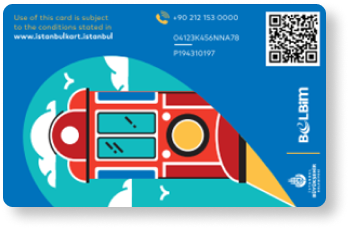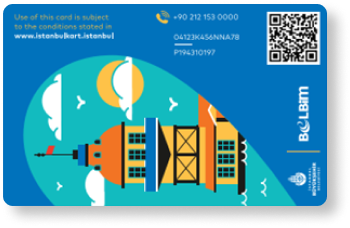
Churches in Cappadocia: The Best 10 Churches You Must Visit
Cappadocia is a dreamy ancient region located in central Turkey that is known for its unique landscape, history, and architecture. One of the most fascinating aspects of Cappadocia is its extensive network of underground cities and cave dwellings, which were carved out of the soft volcanic rock by early Christian communities. These cave dwellings and underground cities have been used for many purposes over the centuries, including as monasteries, churches, and homes.
The churches of Cappadocia are particularly noteworthy, as they contain some of the most spectacular examples of Byzantine art and architecture in the world. But before we dig into these churches, let’s have a look at the best way to discover Cappadocia: Cappadocia Travel Pass®. This Pass is not an ordinary sightseeing Pass but beyond! Cappadocia Travel Pass® gives you to access 35+ amazing attractions and services. Discounted hot air balloon rides, free entrance to popular museums and underground cities, excellent customer service, reliable tours, and many more… Click here and have a look at the exemplary itinerary we have created for you, and decide for yourself. Now, here are ten of the most famous churches in Cappadocia:
The Church of St. John the Baptist
The St. John the Baptist Church is located in the Zelve Open Air Museum. It was built in the 13th century and featured beautiful frescoes depicting scenes from the Bible. The church is named after St. John the Baptist, who is venerated in both Eastern and Western churches. This church is one of the oldest churches in Cappadocia. It was originally built in the 10th century and features a beautiful domed ceiling and frescoes depicting scenes from the life of St. John the Baptist.
The Dark Church
Located in the Goreme Open Air Museum, the Dark Church is named for its lack of natural light. It was built in the 12th century and featured some of the best-preserved frescoes in Cappadocia, including images of Christ and the apostles. Dark Church was built in the 11th century and featured some of the most well-preserved frescoes in Cappadocia. The church is named after its location, which is in a cave that is difficult to access and therefore very dark.
The Church of St. Barbara
The St. Barbara Church is another popular destination in the Göreme Open Air Museum. It was built in the 11th century and featured stunning frescoes depicting scenes from the life of Christ. The church is named after Saint Barbara, a Christian martyr who is venerated in both Eastern and Western churches. This church is located in the town of Cavusin and was built in the 11th century. It features a unique double-naved design and frescoes depicting scenes from the life of St. Barbara.
The Church of St. Catherine
This church is located in the town of Sinasos and was built in the 19th century. It features a stunning interior decorated with intricate carvings and frescoes depicting scenes from the life of Christ. St. Catherine Chapel is located in the Göreme Open Air Museum. It featured beautiful frescoes depicting scenes from the life of Christ. The chapel is named after St. Catherine of Alexandria, who is venerated in both the Eastern and Western churches.
The Church of St. Theodore
It is situated in the Ürgüp village of Yeşilöz. The apse of the T-shaped church bearing St. Theodore's name is sizable. Under its dome, there is a gallery. It differs from other churches in Cappadocia because of this. It is believed that the frescoes are from the 11th and 13th centuries. Given the two distinct painting techniques it exhibits, it is obvious that it was created by two different painters. This church features a beautiful domed ceiling and frescoes depicting scenes from the life of St. Theodore.
The Snake Church
This church is located in the town of Uchisar and was built in the 10th century. It features a unique triangular shape and frescoes depicting scenes from the life of St. Onuphrius. An unfinished cave chapel located in the Göreme Open Air Museum is called Snake Church. A semi-naked monk is one of the remarkable mural paintings in the tiny chapel (St. Onuphrius). Although the architectural shape is simple and asymmetrical, the stone masonry and paintings of the occupants' favorite saints convey a sense of grandeur.
The St. Nicholas Monestry
This church is located in the town of Demirkazik and was built in the 11th century. It features a stunning exterior decorated with intricate carvings and frescoes depicting scenes from the life of St. Nicholas. The town center, which can be reached from the road following Dere Sokak, is just a short distance from St. Nicholas Monastery, which is situated in the Manastr Valley to the south of Mustafapaşa. The most significant religious edifice in the Monastery Valley is the St. Nicholas Monastery, a complex building dedicated to St. Nicholas, which was highly revered by the locals.
Tokalı Church
The Tokalı Church, also known as the Buckle Church, is one of the most famous churches in Cappadocia. It was built in the 10th century and featured beautiful frescoes depicting scenes from the Bible. The church is located in the Göreme Open Air Museum, which is a UNESCO World Heritage site and a must-see destination for anyone visiting Cappadocia.
The Church of St. Eustathios
Saint. Eustathios Church is among the more well-known Virgin Mary and Tokal Churches while being one of Cappadocia's smaller churches. The church's structure has a rectangular layout as can be seen when you look at it. The church, which has two naves, is the only one with this style of architecture in the Cappadocian region. This church is located in the town of Taskinpasa and was built in the 10th century. It features a unique design with a square-shaped apse and frescoes depicting scenes from the life of St. Eustathios.
The Church of the Holy Cross
This church is located in the town of Yesiloz and was built in the 11th century. It features a stunning interior decorated with frescoes depicting scenes from the life of Christ. Outside of Mustafapaşa, there is a basilica-style cave church called Cross Church. This church is located directly below the open parking area, 75 meters northwest of Holy Cross Church.
In conclusion, the churches of Cappadocia are a testament to the ingenuity, creativity, and artistic prowess of the early Christian communities that once inhabited the region. These churches, with their intricate frescoes, stunning history, and amazing decorations are ready for you to see.
FAQ
What are the churches in Cappadocia?
Cappadocia is home to many historic churches, some of which date back to the early Christian era. These churches are known for their unique architecture, frescoes, and religious significance.
What is the history of the churches in Cappadocia?
The churches in Cappadocia were built by early Christians who fled persecution in the Roman Empire. These Christians found refuge in Cappadocia and carved their churches out of the soft volcanic rock formations in the region. The churches were used for worship and as hiding places during times of persecution.
Which churches in Cappadocia are the most famous?
Some of the most famous churches in Cappadocia include the Goreme Open-Air Museum, the Dark Church, the Tokali Church, and the El Nazar Church. These churches are known for their well-preserved frescoes and unique architectural features.
Are the churches in Cappadocia open to the public?
Yes, many of the churches in Cappadocia are open to the public for visitation. However, some churches may have limited hours or require an admission fee.
What are the architectural features of the churches in Cappadocia?
The churches in Cappadocia are known for their unique rock-cut architecture, which includes arched doorways, domed ceilings, and intricate carvings. Some churches also have multiple levels, with steep staircases leading to upper galleries and balconies.
What are the frescoes in the churches of Cappadocia?
The frescoes in the churches of Cappadocia are well-known for their intricate details and vivid colors. They depict scenes from the Bible, including the life of Jesus, the Virgin Mary, and the apostles. The frescoes were painted using natural pigments and are believed to date back to the 10th-12th centuries.
Are the frescoes in the churches of Cappadocia well-preserved?
Yes, many of the frescoes in the churches of Cappadocia are well-preserved, despite being several centuries old. However, some frescoes have suffered damage over time due to natural erosion and human activity.
What is the best time to visit the churches of Cappadocia?
The best time to visit the churches of Cappadocia is during the spring or fall when the weather is mild and the crowds are smaller. Summer can be very hot and crowded, while winter can be cold and snowy.
What should I wear when visiting the churches of Cappadocia?
Visitors to the churches of Cappadocia should dress modestly and respectfully. This means covering the shoulders and knees and avoiding revealing clothing. Visitors should also remove their shoes before entering the churches.
Are there guided tours available for the churches of Cappadocia?
Yes, there are many guided tours available for the churches of Cappadocia. These tours can provide valuable information about the history and significance of the churches, as well as help visitors navigate the complex cave systems.




 Travel around Istanbul freely
with Public Transportation Card
Travel around Istanbul freely
with Public Transportation Card
Buy your unlimited Istanbul Public Transportation Card now. We deliver it your hotel before you arrive.





Latest Posts

Why Should You Visit Cappadocia? Updated for 2023
Have you ever wondered where all those lovely photographs of a valley seen from a hot air balloon originate from? Cappadocia, tucked right in the heart of Turkey's Anatolia region, is one of the country's tourism centers, despite its tiny size. And w...

Cappadocia: Hot Air Balloon Flight Guide 2023
Have you ever wondered what it feels like to fly? To float among the birds in the sky and enjoy a bird’s eye view of the gorgeous surroundings around you? Hot air balloons in Cappadocia, Turkey provide just that and more – all the while delivering an...

Underground Cities of Cappadocia
The ancient underground cities of Cappadocia may strike the interest of even the most claustrophobic person! Every year tens of thousands of tourists around the world visit Cappadocia to discover these mysterious caves and learn about their history. ...

How far is Cappadocia from Istanbul?
The distance between Cappadocia and Istanbul is around 730 km (454 miles). This may seem like a lot but think about all the adventures you will experience once you arrive! Furthermore, there are many ways to get there and you will surely find one tha...

Top Things to Do in Cappadocia
Wondering about things to do in Cappadocia? Trying to arrange your trip but there are many question marks. Cappadocia Travel Pass® provides over 25 attractions, with just one pass – so book yours NOW! Here is a list of the main must-do activities but...

The Top 20 Amazing Cave Hotels in Cappadocia
Looking for a unique, one-of-a-kind place to stay in Cappadocia? Why not try a cave hotel? There are plenty of incredible cave hotels in Cappadocia that maintain the region’s history while providing a uniquely modern experience.&n...

Everything About Ihlara Valley
Ihlara Valley, which can be mistakenly written as Ilhara Valley, is a canyon with a depth of around 120 meters and was created by the Melendiz River thousands of years ago. To enjoy this amazing natural beauty, Cappadocia Travel Pass offers yo...

The Top 18 Reasons to Visit Cappadocia
There are many reasons to visit Cappadocia, from its amazing natural beauty to the warm and welcoming natives. Here, you can find 18 reasons to visit Cappadocia! Planning your Cappadocia trip can be exhausting since you may see many different ...

Cappadocia From İstanbul
Istanbul is Turkey’s most crowded city and it has many cultural values because of the historical background of the region. Tourists mostly prefer to start their Turkey journey from İstanbul because of these facts. The distance between Istanbul and C...

Whirling Dervishes Sema Ceremony in Cappadocia
The term "sema" has Arabic roots. It can mean two things. The sky is one, and listening is another. It eventually came to be known as one of the dhikr rituals the Sufis, who practiced Sufism, did by rotating themselves around to the accompaniment of ...

4.8 out of 5 stars
Cappadocia Travel Pass has an average rating of 4.8 /5 from 1086 reviews
Read all traveler reviews →